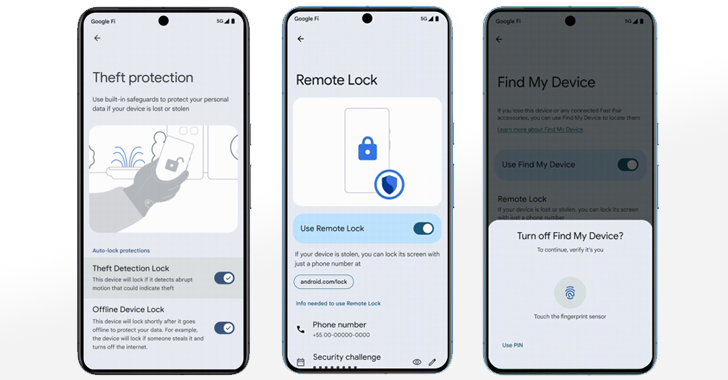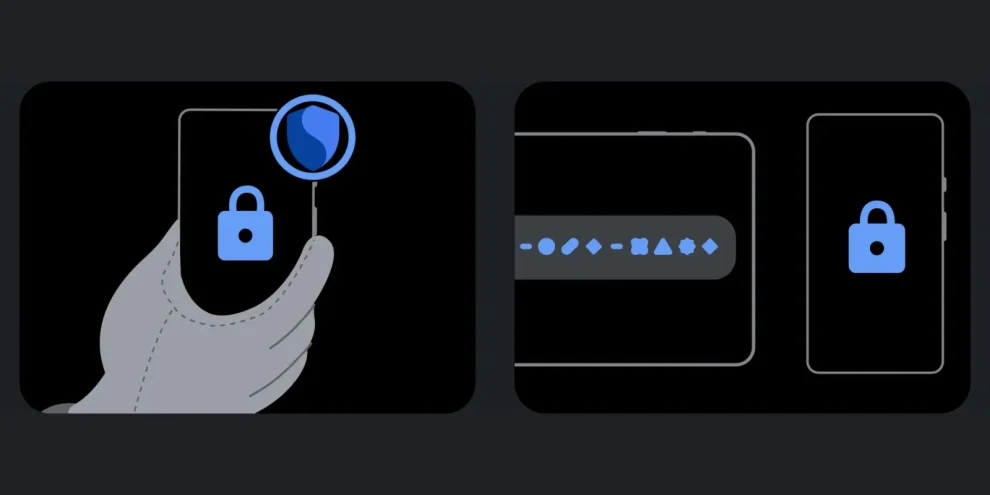Google has begun rolling out three new anti-theft features for Android devices worldwide. The tech giant’s latest update introduces Theft Detection Lock, Offline Device Lock, and Remote Lock, aiming to provide users with unprecedented protection against device theft and unauthorized access.
As smartphone thefts continue to plague urban centers globally, Google has responded with a suite of innovative security measures. These features, which leverage advanced machine learning and remote access capabilities, promise to revolutionize how Android users safeguard their devices and personal data.
This rollout represents a significant leap forward in mobile security,” says Sarah Chen, a cybersecurity analyst at TechSafe Solutions. “Google is essentially turning every Android phone into a smart, self-protecting device.”
Theft Detection Lock: AI-Powered Protection
At the forefront of Google’s security update is the Theft Detection Lock, a feature that uses artificial intelligence to identify potential theft scenarios in real-time.
How it works:
– The system employs a machine learning model to detect sudden, unusual movements.
– It can recognize if a phone is snatched from a user’s hand, whether the thief is on foot, bicycle, or in a vehicle.
– Upon detection, the phone automatically locks, preventing access to apps and personal data.
John Martinez, an early beta tester in São Paulo, Brazil, shared his experience: “It’s like having a personal bodyguard for your phone. During a beta test, my colleague playfully grabbed my phone, and within seconds, it locked itself. I was impressed by how quickly it reacted.”

Offline Device Lock: Closing the Connectivity Loophole
Complementing the Theft Detection Lock is the Offline Device Lock, designed to thwart thieves who attempt to bypass security measures by disconnecting devices from the internet.
Key features:
– Automatically locks the screen if the phone remains disconnected from the internet for an extended period.
– Prevents data access even when the device is offline.
“Thieves often immediately turn off connectivity to prevent tracking,” explains Dr. Emily Wong, a digital forensics expert. “This feature effectively counters that tactic, adding an extra layer of protection for users.”
Remote Lock: User-Controlled Security
The third pillar of Google’s new security triad is Remote Lock, empowering users to take control of their device’s security from afar.
How it works:
– Users can remotely lock their phone using their registered phone number.
– Particularly useful when users can’t access their Google account password.
Mark Thompson, a smartphone security consultant, notes, “Remote Lock is a game-changer for those moments of panic when you realize your phone is missing. It puts control back in the user’s hands, literally.
Rollout and Availability
Google has confirmed that the rollout of these features has already begun, with some users reporting access to Theft Detection Lock and Offline Device Lock, while others have received Remote Lock.
“We expect the final versions of these features to be available to more users by the end of this year,” stated a Google spokesperson in a press release dated October 6, 2024.
Early user reactions have been overwhelmingly positive. Lisa Wong, a graphic designer in New York City, shared her thoughts: “As someone who’s had a phone stolen before, these new features give me peace of mind. It’s reassuring to know my data is protected even if my phone falls into the wrong hands.”
The introduction of these features is expected to have a significant impact on the smartphone market. Industry analysts predict that other manufacturers may soon follow suit with similar security measures.
“Google is setting a new standard for smartphone security,” says Alex Rodriguez, a market analyst at MobileTech Insights. We anticipate this move will pressure other manufacturers to enhance their security offerings, ultimately benefiting consumers across all platforms.
As these features roll out globally, experts are already speculating about the next frontiers in mobile security.
Dr. Wong adds, “The use of machine learning in Theft Detection Lock opens up exciting possibilities. We could see future iterations that adapt to user behavior, becoming even more accurate in distinguishing between normal use and potential theft scenarios.”
Google’s introduction of Theft Detection Lock, Offline Device Lock, and Remote Lock marks a significant milestone in Android security. By leveraging advanced technologies and user-centric design, these features promise to provide Android users with unprecedented protection against theft and unauthorized access. As the rollout continues throughout the year, millions of Android users worldwide can look forward to enhanced peace of mind regarding their device and data security.
















Add Comment